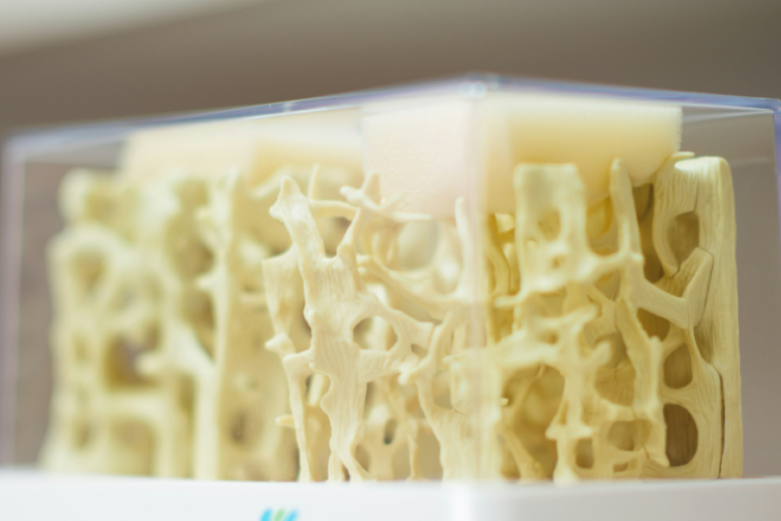Bioengineering Minor

Bioengineering
Minor
The Bioengineering minor provides cadets with foundational knowledge in applying engineering principles to biological and medical problems. It is designed to complement majors in engineering, biology, or related fields.
Offered by the Department of Chemical & Biological Science & Engineering
academics-sidebarnav
The Bioengineering minor at the United States Military Academy gives you the chance to explore one of the most cutting-edge areas in science - while developing the skills to lead in both military and medical environments. By pairing biology and engineering, cadets apply these disciplines to solve real-world problems such as how technology can improve human health, enhance soldier performance, or help injured service members recover.
Bioengineering (also called biomedical engineering) is the application of engineering principles to biological systems. It involves designing tools, devices, and processes to improve health, support the human body, and solve problems in medicine, biotechnology, and environmental science. At West Point, the bioengineering minor focuses on how these innovations can support the Army mission - from injury treatment and prosthetic design to wearable sensors and battlefield medical technology.
Why choose the Bioengineering minor at USMA?
- Military Medical Relevance
Learn how to support combat casualty care, rehabilitation, performance monitoring, and soldier health through advanced technology and biological insight. - Interdisciplinary Edge
Combine biology, chemistry, physics, and engineering - making cadets more versatile and better prepared for a range of careers. - Great for Pre-Med or STEM Careers
This minor is especially helpful if a cadet is pursuing medical school, Army medicine, public health, biomedical research, or biosecurity roles. - Leadership Through Innovation
As future officers, cadets' ability to understand and apply bioengineering concepts will give them an edge in leading teams, supporting medical missions, or working in science and technology units.
What to do with this minor?
The Bioengineering minor adds serious value to any major, especially if the cadet is thinking about:
- Medical school or careers in healthcare
- Biomedical or biotechnology industries
- Army roles related to medical services, human performance, or engineering
- Graduate study in bioengineering or related sciences
- Innovation at the intersection of science, technology, and human health
Interested cadets
The Bioengineering minor has 5 courses.
Required courses - Choose 3
- CH300 - BIOMEDICAL ENGINEERING
- CH350 - BIOPROCESS ENGINEERING
- CH450 - BIOENGINEERING MDLING & ANLSIS
- XE310 - INTRO TO BIOMECH ENGINEERING
Bioengineering minor electives - Choose 2
Prerequisites must be satisfied. Additional electives are available on approval of the program director and must meet a minimum of 3.0 credit hours per course.
- CH362 - MASS & ENERGY BALANCES
- CH364 - CHEMICAL REACTION ENGINEERING
- CH387 - HUMAN PHYSIOLOGY
- CH471 - POLYMER CHEMISTRY
- CH473 - BIOCHEMISTRY
- CH479 - METHODS & APPS OF BIOTECH
- CH489 - INDIVIDUAL RESEARCH I
- EE381 - SIGNALS AND SYSTEMS
- EE489 - ADV IND STUDY IN ELECT ENGR
- EV396 - ENVIRONMENTAL BIOLOGICAL SYS
- EV402 - BIOCHEMICAL TREATMENT
- EV489A - ADVANCED INDIVIDUAL STUDY I
- KN360 - BIOMECHANICS OF HUMAN MOVEMENT
- KN493 - INDIV RESEARCH IN KINESIOLOGY
- MA391 - MATHEMATICAL MODELING
- MA477 - THEORY & APPL OF DATA SCIENCE
- MA486 - MATHEMATICAL COMPUTATION
- MA489 - ADV INDIV STUDY IN MATH
- ME362 - FLUID MECHANICS
- ME489 - ADV STUDY IN MECH ENGRNG
- XE475 - MECHATRONICS
Learn more
Cadets have numerous opportunities to participate in activities that will expand their intellectual and social interests within their field, including scholarship opportunities, Projects Day Research Symposium participation, and the summer Academic Individual Advanced Development (AIAD) program, a USMA-run academic enrichment experience.
To learn more about enrichment in this area of study, visit the Department of Chemical & Biological Science & Engineering or the Center for Molecular Science.